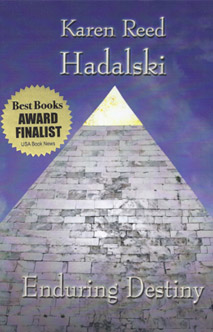One of the most powerful barriers to living a spiritually centered and peaceful life is the unwillingness to forgive one’s self and others.
We’ve all done things, said things, or acted in ways we’ve later come to regret. And, we’ve all had to suffer through and come to grips with negative, hurtful things done to, said about, or inflicted upon us by others.
There is nothing positive to be gained from hanging-on to residual regrets or self-recrimination. Once realized, the only actions we can take to correct our misdeeds are: apologize to the one we’ve hurt; try to make amends; or, if our actions included gossip, slander, or half-truths which damaged another’s reputation, acknowledge and correct these words in a public way. Every great spiritual teacher reminds us that psychic assassination is every bit as devastating as physical murder–both to the victim and to the soul of the perpetrator–and that justice WILL be served, either through the corrective actions of the offender or by way of the exact and perfect Law of Karma.
Where forgiving others is concerned, I’ve always found the platitude, “Forgive and Forget,” to be both ridiculous and impossible. While we can repress, deny, or try to ignore hurtful things done to us, to “forget” them is unnatural and, probably, impossible–unless you suffer from Alzheimer’s Disease.
Further, what does “forgive” really mean? Colloquially, it seems to imply that we simply excuse another for the harm they have caused. To me, that always seemed wrong: It ignored accountability and justice and condoned deliberate acts of cruelty.
But, after giving the subject careful thought, I’ve come to see forgiveness as a decision and an act of personal power.
To forgive literally means that you grant pardon to the offender and cancel a debt or obligation incurred to you by another. To pardon is to release another from liability for an offence. And, not one of these terms implies absolution from guilt.
The abuser must experience the effects of his every offence against life: This is the impersonal, infallible Law of Karma. However, you do not have to be the one to mete these experiences out. By taking this upon yourself, you lock yourself into a relationship of resentment and bring yourself down to the level of your offender. If you determine to “get even,” or act in kind, you, too, will have to experience the effects of your actions.
When you come to understand and accept the impartial law of cause and effect, you will be able to walk away from relationships that are hurtful with complete confidence that your offender will meet his karmic fate. And, your decision to allow that fate to be resolved without your involvement will free you from any further obligation or attachment to that soul.
You will then be free to step out of the role of “victim” and to claim the power of one who has made the decision to forgive. This, in turn, will enable you to resume–with clarity and spiritual/ psychological freedom– the fulfillment of your unique purpose for BEING in the world.



